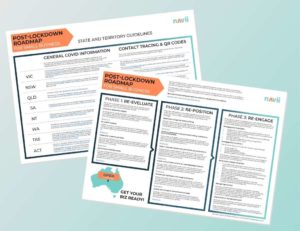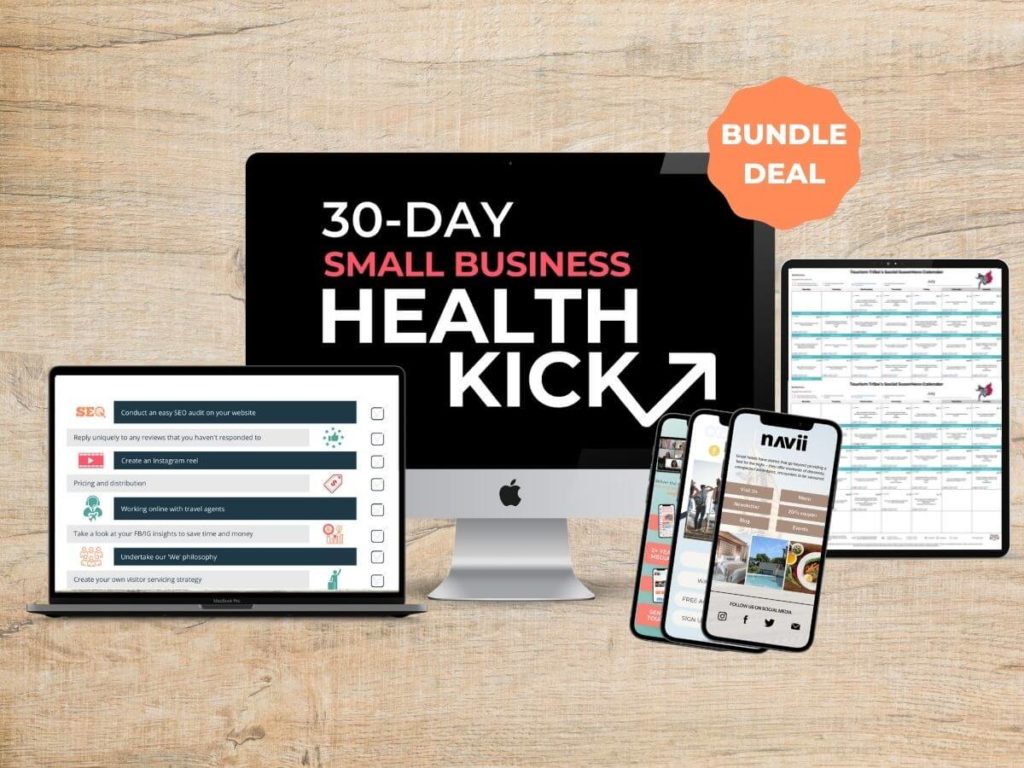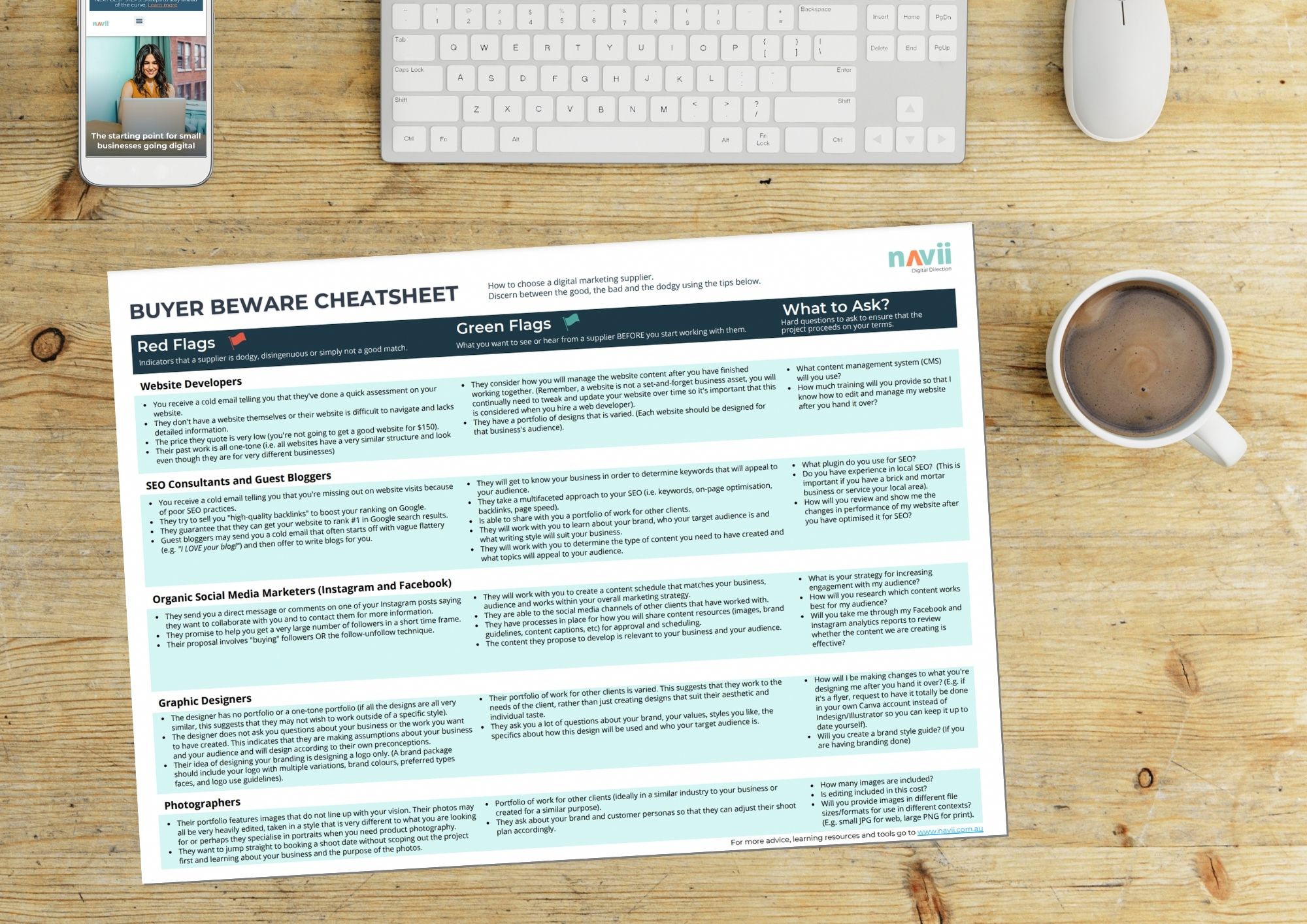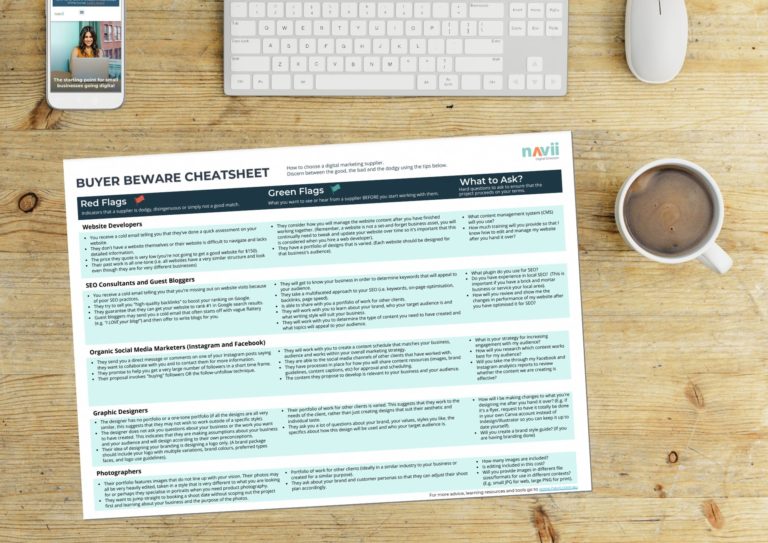Google Analytics and any online data, in general, can be incredibly helpful for improving your business. By getting a detailed breakdown of where your users are coming from, how long they’re spending on your site, and how many of them are making a purchase, you can improve your efforts to gain new customers and in turn increase sales and grow your business.
Google Analytics is one of the most helpful tools for any business, especially as it gives you a range of helpful analytics for free. However, other business tools such as online shopping carts and social media management software can also give you all kinds of useful data.
Watch the video or read below as you learn the 10 different ways you can use analytics to improve your business.
https://youtu.be/KjoN5CCznFM?rel=01. Reducing Bounce Rate
Google Analytics can help you see the bounce rate of your business website. This is the percentage of users who leave your website without interacting with it or browsing further. It’s important to reduce it as, the lower your bounce rate, the more likely you are to make sales.
You can even see the bounce rate of individual pages. You can use this info to add more engaging content, internal links, and calls to action encouraging people to stay on your page and browse further.
2. Boosting Session Duration
You can also view the average session duration of users when you use Google Analytics for your business website. This is another helpful analytic as, much like a high bounce rate, a low average session duration means viewers are less likely to buy something.
One of the best ways to improve the average session duration is to add lengthier content. Instead of a 500-word blog or how-to guide, extend written articles to 1000-to-2000-word valuable content. It can also help to include videos in your content and product descriptions, as it wil draw in and engage people stay longer on your site.
3. Making More Impactful SEO Content
One of the biggest benefits of using analytical tools is that they can help you boost your search engine optimisation (SEO). Google Analytics is particularly helpful as it tells you the most common search terms people use to find your site and which pages are performing the best.
You can use this data to focus your content marketing on popular search keywords and terms. You can also find out what kind of content is converting the most visitors into customers and make more like it. For instance, you might find out that blogs with strong calls to action or product pages with videos work better than others.
4. Targeting New Markets
Using analytics can even help you expand into new markets. Analytics tools will give you a breakdown of the background of your most common site visitors and customers. This includes information on their age, sex, country, and even the browser they use.
You can use this information to dedicate your products, services, and even your marketing to new demographics. For instance, if you’re selling male grooming products but find out that you’re getting a lot of female visitors, you could make SEO blogs with titles like “The Best Gifts For Men”, or even launch a new product range for females.
5. Finding Out Your Most Popular Products
You can also use analytics to establish which of your products are the most popular among customers. Google Analytics can help with this, but online shopping cart platforms are even more helpful in determining your biggest sellers.
This information is useful as it can tell you what kind of products you need to focus on. For instance, if you’re selling a wide variety of products or experiences you can find out the most popular products, or what kind of features people are most interested it. It can also help you clear low-selling products to save costs.
6. Seeing Whether Your Marketing Is Working
When you pay for a marketing campaign or try a new marketing method yourself, it can be tricky to know exactly how well it works. However, you can often get a lot of helpful information from tools like Google Analytics.
For example, if you launch a social media competition and notice that you’re receiving thousands of new inbound links each day from Facebook, this gives you a great indication that you should keep utilising social media marketing. You might also find out that your link-building strategy is working and you’re receiving inbound links from other blogs.
7. Optimising Your Website For Mobile Browsers
Many analytical tools will give you detailed information on what browsers your visitors and customers use, including whether it’s on their desktop or smartphone. This information can help you ensure that your website is accessible for all users.
If you find out that mobile users have a higher bounce rate, you can work on making your website load faster on smartphone browsers. If you find that you’re getting barely any smartphone users, you might want to optimise your website for mobile browsing or even launch an app.
8. Helping You Cut Costs For Your Business
The data you collect for your business isn’t just helpful for getting more customers and increasing sales. It can also help you make smarter financial decisions for your business, especially if you collect analytics on your finances with software like Xero or MYOB.
Once you have a breakdown of your business expenses, you can determine where you need to reduce expenses or your business. What’s more, tools like Google Analytics can help you determine whether you should keep paying for certain marketing services or cut them.
9. Determining Whether Your Calls To Action Are Working
The content on your website should always include a call to action encouraging users to buy something, download something or sign up for something. For instance, the end of each blog should take visitor to a next step of the journey to either buy something in your online store or join your mailing list.
Analytics can also help with this as they can help you determine whether your calls to action are working. If a blog has a high bounce rate, you can improve the call to action or even move it further up the page. You can also find out which blogs are the most successful at converting people into customers and use them as examples.
10. Helping Your Business Set Goals
To continue to improve your business, you must set regular goals and do whatever you can to reach them. While you can determine these goals yourself, the analytics you collect can help you figure out what kind of goals you should be setting.
For example, if Google Analytics shows that you’re not converting enough customers your goal could be to improve your content to increase conversions. If you find out you’re not getting enough younger users, you could start a new marketing campaign aimed at them. All kinds of other information you collect can also help you set smart and realistic goals.
In Summary
If you want to boost the success of your business fast, then make sure you’re collecting as much data as possible. Using Google Analytics is your ultimate (and free) first step, but you can also use all kinds of other business apps and software to collect useful analytics.
The information you collect can help you improve your marketing efforts, boost your sales, and even improve your business finances as you will be empowered by better data intelligence. Make sure to look at your analytics regularly and use the information to guide your direction and make improvements.






